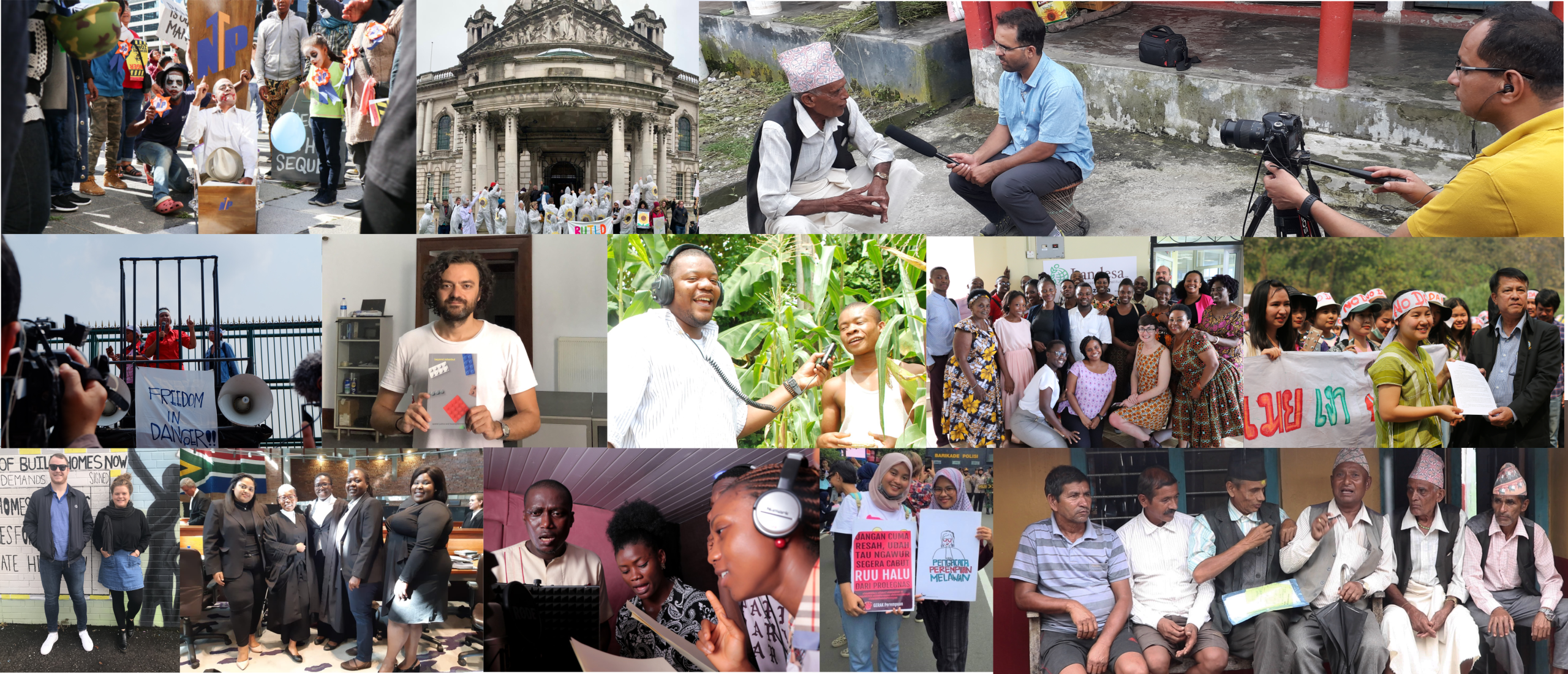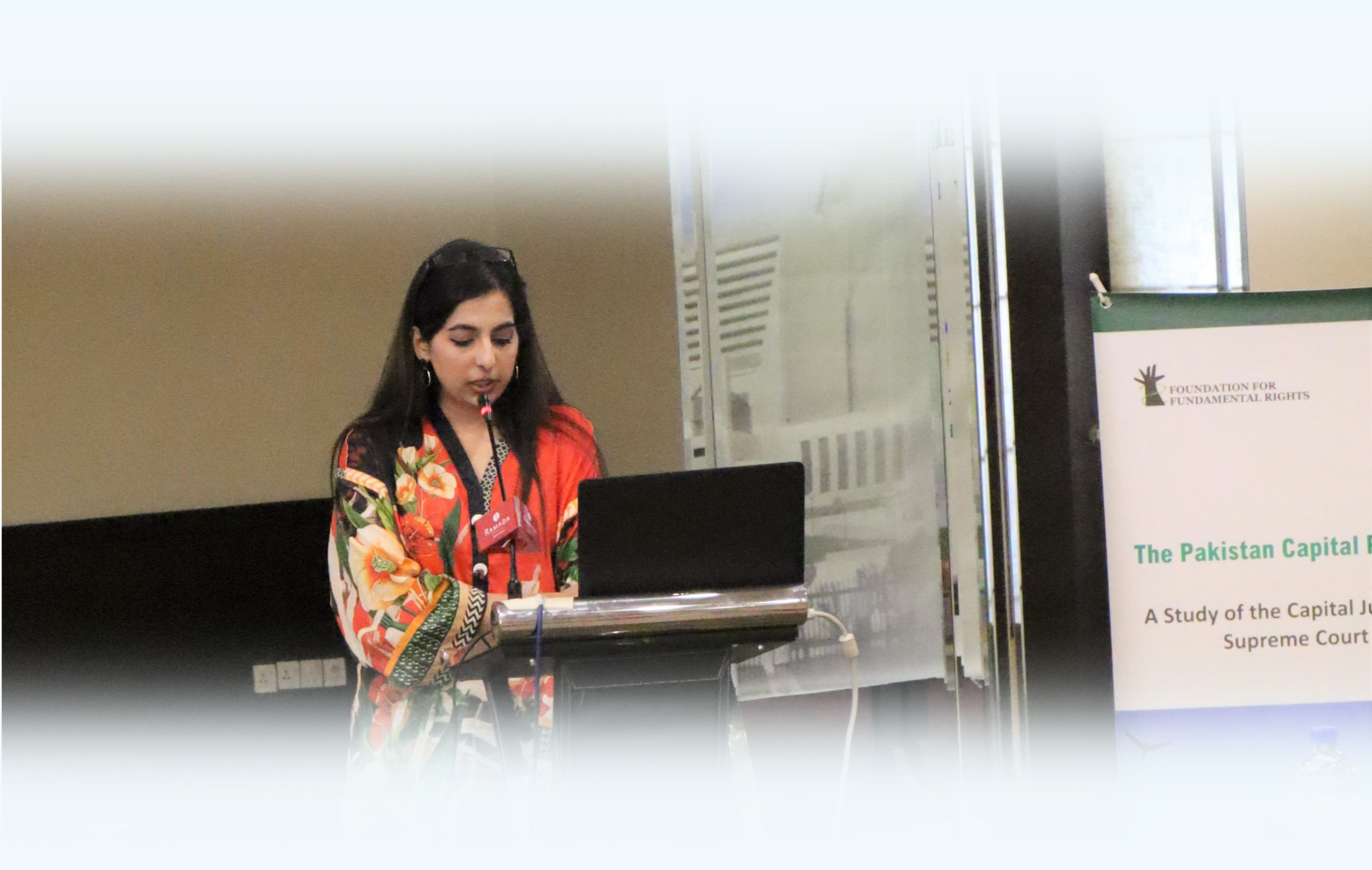Zunera Shahid
Pakistan

Zunera Shahid, a Bertha Justice Alumnx and deputy director of the Foundation for Fundamental Rights (FFR),continues to use her Fellowship experience to inform her journey as a human rights lawyer and to guide her mentorship of incoming Bertha Justice Fellows.
The Bertha Justice Initiative creates the space to enhance the legal knowledge and experience of emerging radical lawyers and to train the next generation of social justice and movement lawyers. For Zunera Shahid, a Bertha Justice Alumnx and deputy director at the Foundation for Fundamental Rights (FFR), Pakistan, her Fellowship experiences inspired her not only to continue to bring positive change to her community, but also to share her experience and help guide incoming Bertha Justice Fellows at FFR as a supervisor.
Zunera’s first exposure to the human rights field was in 2016, when she started her Fellowship at FFR. Being a Bertha Justice Fellow connected Zunera to a global cohort of emerging lawyers and created a space for sharing ideas through network- wide engagements, such as the Women’s Working Group gathering in 2017 and the 2018 Bertha Justice Global Convening, which brought together 42 Fellows from 12 countries. Coming together with other Bertha Fellows all working towards supporting their communities made Zunera realize how impactful the work of radical lawyers can be when they are based at grassroots organizations. These experiences – alongside FFR’s dedication to telling the stories of those who suffer human rights abuses – motivated her to continue working at FFR beyond her Fellowship period and mentor incoming Bertha Fellows there.
Zunera has supervised Fellows since 2019, and through this experience has found that emerging lawyers are inquisitive: they bring light to existing flaws that seasoned lawyers may overlook and affirm the need to introduce better practices as they develop their skills. To support their growth as radical lawyers, Zunera fosters conversations that place importance on imbuing Fellows with a sense of ownership of their work.
Zunera’s experience as a Bertha Fellow also affirmed a deep belief that community voices must lead movements – not lawyers. Thus, she requires and encourages the Fellows she mentors to meet the community members, victims and families that FFR supports.

For instance, under Zunera’s lead, Fellows have participated in litigation and a targeted media campaign for the case of Rani Bibi, a woman wrongfully convicted of murder at the age of 14. It took 19 years for Rani to be acquitted of all charges by Lahore High Court. Rendered financially incapacitated by the system’s wrongdoings, Rani was left without an avenue for reparation as a debate on the concept of miscarriages of justice is wholly absent in Pakistan. After meeting with Rani multiple times and recognizing the immense setback she suffered as a result of her wrongful incarceration, Fellows launched Pakistan’s first-ever litigation on the issue – highlighting the need for a redressal mechanism – and liaised with international journalists to generate much-needed discourse on the subject.
As Rani’s case shows, Zunera uses her experience as a Bertha Justice Alumnx and supervisor to incoming Fellows to help guide their work towards sustaining social justice in Pakistan. At the heart of any social justice movement are the creation of a platform for those whose human rights are threatened, and the fact that no social movement can operate in a vacuum. Zunera’s learnings as a Bertha Justice Fellow and her experiences at FFR have enabled her to be amidst communities, activists and radical lawyers, and to train the next generation of radical lawyers to do the same.
CREDITS
Photo 1: Zunera Shahid, FFR deputy director and Fellows supervisor at the launch event of The Pakistan Capital Punishment Study held in Islamabad, Pakistan. Image: Umair Ahmed
Author: Cinderella Alhomsi, Bertha Justice Initiative Fellowship Coordinator
Editorial Consultant: Karen Frances Eng
This story was originally published in the Bertha Fellows book and some of the information in this story may have changed since it was first published.


 Built with Shorthand
Built with Shorthand